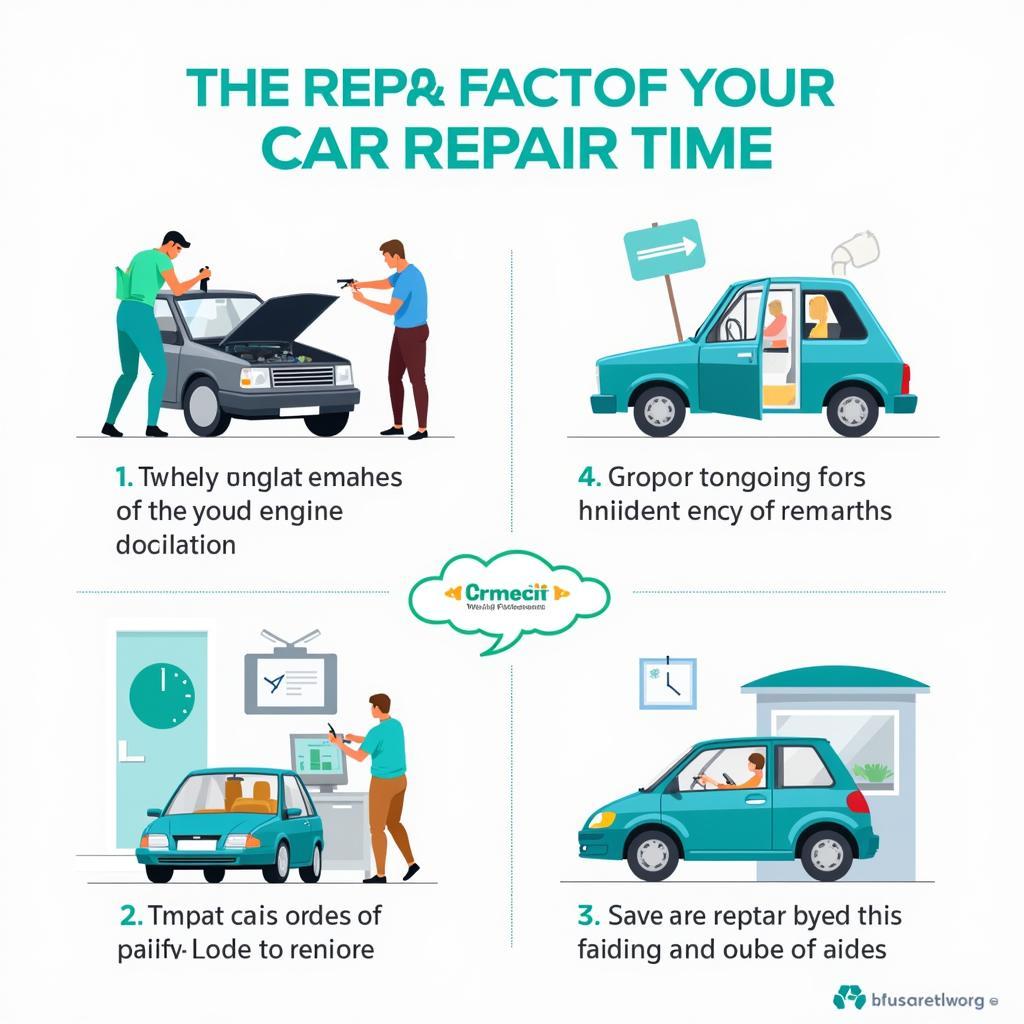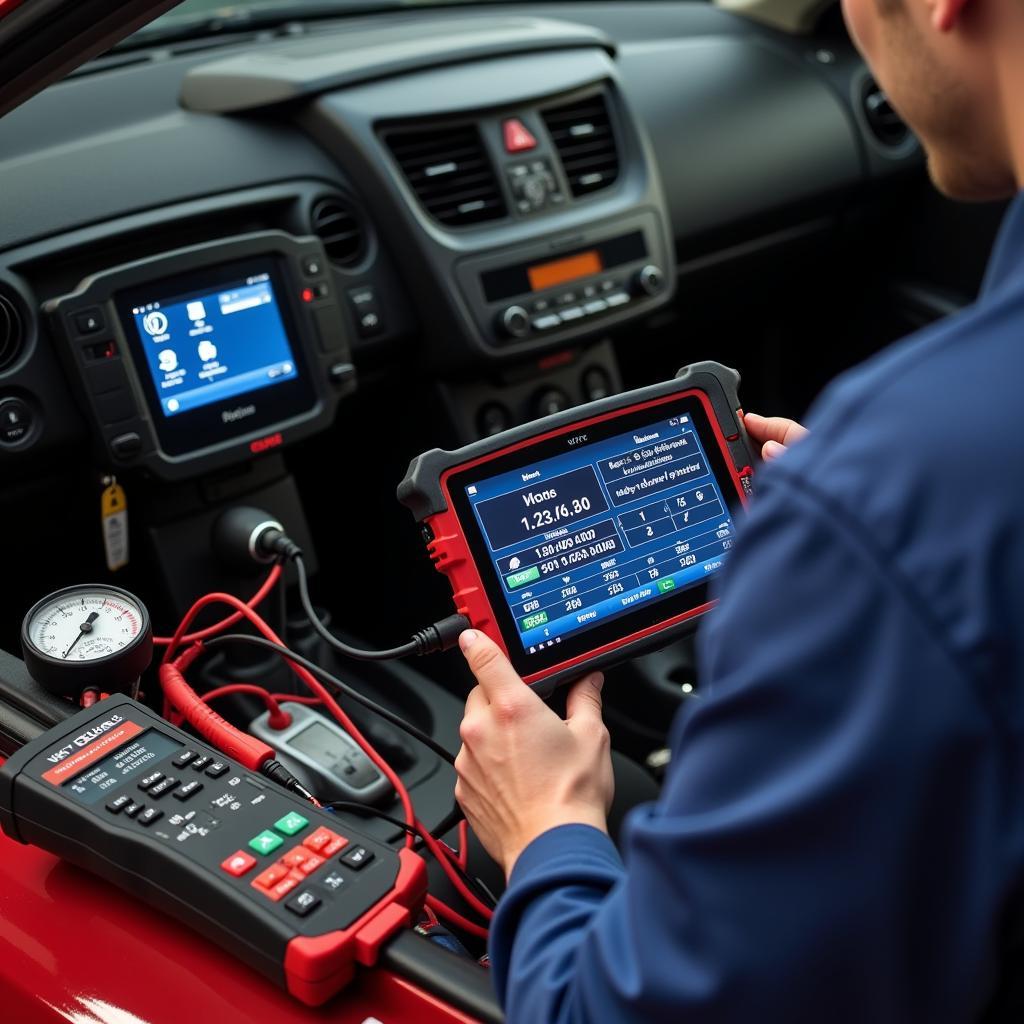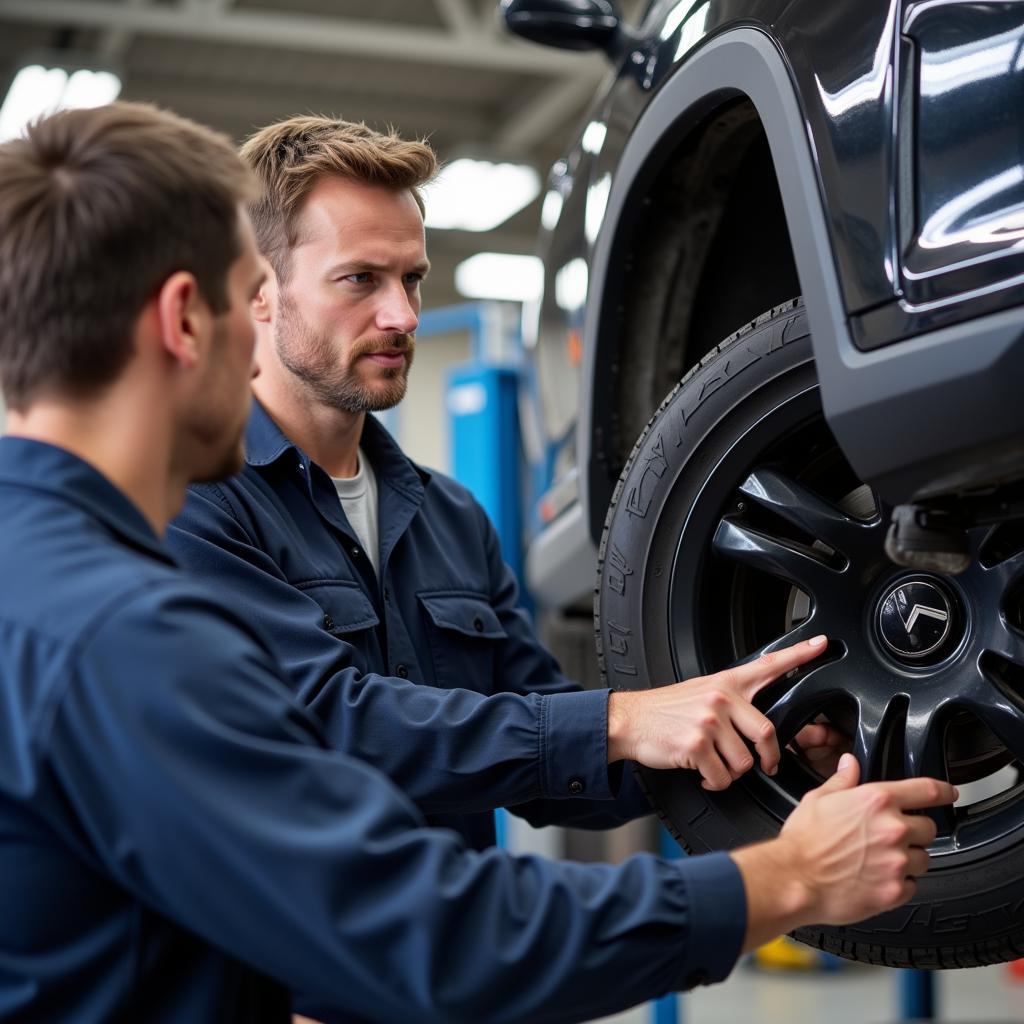Getting your car repaired can be a stressful experience, especially when you’re unsure how long the process should take. So, How Long Is Reasonable For A Car Repair? The truth is, there’s no one-size-fits-all answer. Several factors influence repair time, from the complexity of the issue to the availability of parts.
Repair time can vary significantly depending on the nature of the problem. A simple oil change might take less than an hour, while a complex engine rebuild could take several days or even weeks. The availability of parts also plays a crucial role. If your car requires a rare or imported part, the repair time will inevitably be longer. Furthermore, the specific repair shop’s workload and the technician’s experience level also contribute to the overall timeframe.
Factors Influencing Car Repair Time
Several key factors can impact how long your car spends in the shop. Understanding these elements can help you manage expectations and avoid unnecessary frustration.
- Complexity of the Repair: A minor dent repair is significantly faster than a transmission overhaul. The more intricate the repair, the more time it will require.
- Parts Availability: If the necessary parts are readily available, the repair can proceed quickly. However, if parts need to be ordered, especially from overseas, it can add days or weeks to the repair time.
- Shop Workload: A busy shop with a backlog of repairs will naturally take longer to get to your car than a less busy shop. Inquiring about the current workload is a good idea when scheduling your repair.
- Technician Experience: A highly experienced technician may be able to diagnose and fix a problem faster than a less experienced one.
 Factors influencing car repair time
Factors influencing car repair time
Understanding Diagnostic Time
Before any physical repair can begin, a proper diagnosis is essential. This involves identifying the root cause of the problem, which can sometimes be a complex process. Diagnostic time can vary from a few minutes for obvious issues to several hours for more elusive problems. Modern diagnostic tools can significantly speed up this process, but some problems require meticulous inspection and testing.
Sometimes, a repair might seem straightforward but reveals hidden complexities once the mechanic starts working. For example, a seemingly simple brake pad replacement could uncover a deeper issue with the brake calipers or rotors, adding to the repair time.
 Car diagnostic process using modern tools
Car diagnostic process using modern tools
What to Ask Your Mechanic
Open communication with your mechanic is key to managing your expectations. Don’t hesitate to ask the following questions:
- Estimated Repair Time: Ask for a realistic timeframe for the entire repair process, including diagnosis and parts acquisition.
- Parts Availability: Inquire about the availability of necessary parts and whether they need to be ordered.
- Regular Updates: Request regular updates on the repair progress, especially if there are any unexpected delays.
- Explanation of the Repair: Ask for a clear explanation of the repair process and what exactly needs to be done.
Having these conversations upfront can help alleviate anxiety and ensure a smoother repair experience.
If you are concerned about bad repairs, you might want to check if your car insurance covers them. Read more about it here: does car insurance cover bad repairs.
Realistic Expectations for Common Repairs
While each situation is unique, some general guidelines exist for common car repairs:
- Oil Change: 30 minutes to 1 hour
- Brake Pad Replacement: 1 to 3 hours
- Tire Rotation and Balance: 1 to 2 hours
- Battery Replacement: 30 minutes to 1 hour
- Alternator Replacement: 2 to 4 hours
- Transmission Repair/Replacement: Several days to a week or more
These are just estimates, and the actual time may vary depending on the factors mentioned earlier. Always confirm the estimated time with your chosen repair shop.
In some cases, you may wonder if a flood-damaged car can even be repaired. Check out our article on this topic: can a flood damaged car be repaired.
Conclusion
Understanding how long a car repair should reasonably take involves considering several factors, from the complexity of the issue to the availability of parts. Clear communication with your mechanic, coupled with realistic expectations, can make the entire process less stressful. Remember to ask questions, stay informed, and choose a reputable repair shop to ensure a positive experience. Knowing how long is reasonable for a car repair empowers you to make informed decisions and get back on the road with confidence.
 Mechanic explaining car repair timeframe to customer
Mechanic explaining car repair timeframe to customer
FAQ
- What if the repair takes longer than expected? Communicate with your mechanic to understand the reason for the delay.
- How can I find a reputable repair shop? Seek recommendations from friends, family, or online reviews.
- Should I get a second opinion for a major repair? It’s always a good idea to get a second opinion for expensive or complex repairs.
- What are signs of a bad car repair? Recurring problems, new issues arising after the repair, or unusual noises.
- What are my rights if a repair is done incorrectly? Contact the repair shop and explain the issue. If they are unwilling to rectify the problem, you may need to seek legal advice.
- How can I prevent future car problems? Regular maintenance, such as oil changes and tire rotations, can help prevent future issues.
- Is it cheaper to repair my car myself? DIY repairs can save money, but complex repairs are best left to professionals.
Need assistance? Contact us via WhatsApp: +1(641)206-8880 or Email: [email protected]. Our customer service team is available 24/7.

